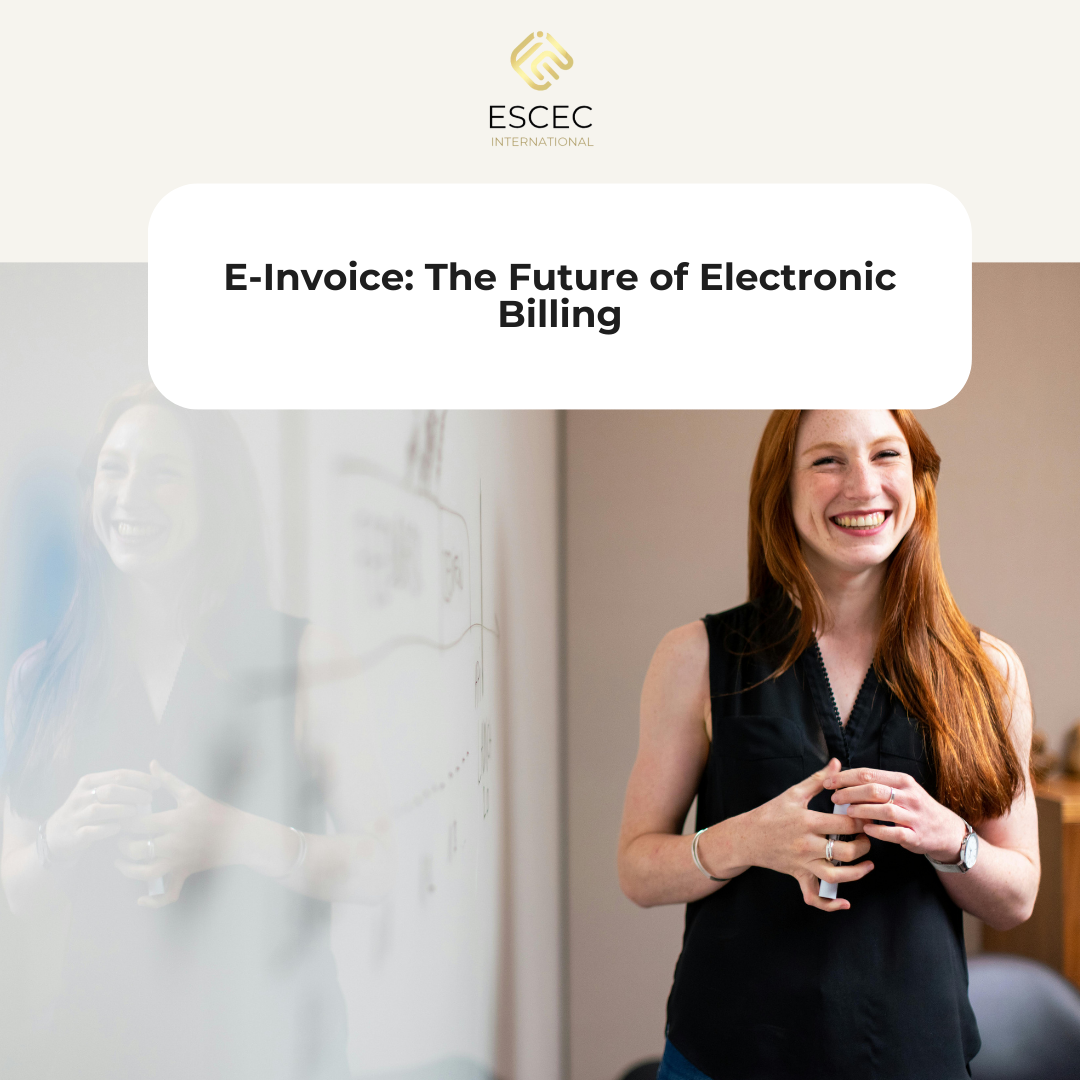E-Invoice: The Future of Electronic Billing
Electronic invoicing applies to all purchases and sales of goods or services between businesses in France that are subject to VAT, provided these are domestic transactions within the national territory. These are typically business-to-business (B2B) transactions.
Some transactions are exempt from electronic invoicing due to VAT exemptions (Articles 261 to 261 E of the French General Tax Code). Exempted cases include:
-
Health services (Article 261, 4, 1°)
-
Educational and training services (Article 261, 4, 4°)
-
Real estate transactions (Article 261, 5)
-
Non-profit organization operations (Article 261, 7)
-
Banking and financial transactions
-
Insurance and reinsurance services (Article 261C)
How Will Businesses Issue an E-Invoice?
The invoicing process itself remains largely unchanged. Mandatory information required by the French Commercial Code and General Tax Code will stay the same. However, four new administrative details will now be mandatory.
Companies must issue invoices to professional clients (B2B) via certified electronic invoicing platforms. These platforms handle the actual transmission to the client’s chosen platform, ensuring compliance and traceability.
How Will I Receive Supplier E-Invoices?
Supplier invoices will be received electronically through your chosen platform(s). This may be the same platform as your supplier, a different one, or the public invoicing portal. Companies are free to select the platform(s) that best meet their needs.
How Often Should E-Invoices Be Submitted?
There is no specific deadline for submitting e-invoices. VAT-liable businesses can continue submitting invoices as they are issued.
E-Invoicing vs. E-Reporting: Understanding the Difference
Electronic invoicing is becoming the standard in France, introducing terms like e-invoice and e-reporting. While both are part of the reform, they cover different transactions and obligations.
What Is an E-Invoice?
An e-invoice is a digital invoice issued, transmitted, and received in standardized formats such as Factur-X, UBL, or CII. Unlike PDFs sent by email, an e-invoice follows a format that allows automatic processing by accounting software and certified invoicing platforms.
Why E-Invoicing Is Becoming Mandatory
The main goals of e-invoicing are to streamline business transactions and combat VAT fraud. Benefits include:
-
Improved traceability: Invoices pass through certified platforms ensuring authenticity.
-
Automated accounting tasks: Software reads invoice data directly.
-
Faster payments: Standardized exchanges reduce processing delays.
-
Simplified VAT declarations: Tax authorities can automatically retrieve relevant data.
From September 1, 2026, all large and medium-sized businesses must issue e-invoices. SMEs and micro-enterprises will follow in 2027.
What Is E-Reporting?
E-reporting is a complementary requirement to e-invoicing. It does not involve exchanging invoices but requires transmitting transaction and payment data to tax authorities, even if the company does not issue e-invoices.
Example: A bakery serving primarily individual clients (B2C) must submit transaction data via e-reporting, even without using e-invoices.
When Is E-Reporting Required?
E-reporting applies to transactions not covered by e-invoicing, including:
-
B2C sales
-
Transactions with foreign clients or suppliers
-
Certain service payments where VAT is not applied on a cash basis
The goal is to provide full VAT-related transaction data to authorities, reducing fraud risk. Companies must submit data via a certified electronic invoicing platform.
Who Must Use E-Invoicing and E-Reporting?
Companies Required to Issue E-Invoices
All French businesses subject to VAT and performing domestic B2B transactions must comply. This includes:
-
Large enterprises
-
SMEs and micro-enterprises
-
Freelancers and auto-entrepreneurs
Invoices must be issued and received through certified electronic platforms.
Example: A freelance designer invoicing a French agency must use a certified platform starting September 2026 (large companies) or 2027 (SMEs/TPE).
Transactions Covered by E-Reporting
E-reporting applies to:
-
B2C sales
-
International transactions
Tip: Ensure your invoicing solution is a certified electronic invoicing platform to save time and remain compliant.
Advantages of E-Invoices and E-Reporting
Cost Reduction and Automation
-
Eliminate paper or PDF invoice management
-
Automated invoice creation, transmission, and accounting entry
-
Minimized errors due to standardized formats
Simplified VAT Reporting and Fraud Prevention
-
Real-time transaction reporting to tax authorities
-
Reduced manual administrative work
-
Lower audit and penalty risk
Improved Cash Flow and Payment Tracking
-
Faster payments due to standardized invoices
-
Real-time invoice tracking
-
Automated follow-ups for overdue invoices
Compliance and Avoiding Penalties
Approved Platforms
Invoices must be transmitted via certified platforms. Options include:
-
Private certified platforms (e.g., Tiime) approved by tax authorities
-
The Public Billing Portal (PPF) will no longer serve as a platform
Benefits of Using a Platform Like Tiime
Tiime provides a complete solution for e-invoicing:
-
Automates the entire invoicing process
-
Securely archives invoices for 10 years
-
Directly integrates invoices into accounting
-
Manages payments and automated follow-ups
-
Real-time activity monitoring
Steps for a Successful E-Invoice Transition
-
Assess Your Needs
-
Determine if your business requires e-invoicing or e-reporting
-
Select a compliant software solution
-
-
Choose the Right Platform
-
Certified platforms like Tiime ensure fast, simple implementation
-
Manage the full invoicing process from creation to submission
-
-
Train Your Team
-
Use guides, invoice templates, and personalized support
-
Download educational resources to become proficient
-
Preparing for Electronic Invoicing
The transition to e-invoices and e-reporting is inevitable. These systems simplify transaction management and improve tax compliance. Choosing the right platform is key.
FAQ about E invoice
1. What are e-invoicing and e-reporting?
-
E-invoicing: Mandatory issuance and receipt of structured e-invoices for domestic B2B transactions.
-
E-reporting: Transmission of transaction and payment data for B2C and international operations.
2. Who must comply with e-invoicing?
-
All VAT-registered French businesses performing domestic B2B transactions (Sept 2026 for large companies; 2027 for SMEs/TPE).
3. Which businesses must perform e-reporting?
-
Companies selling to individuals, foreign clients, or performing specific service transactions.
4. What are the benefits?
-
Cost reduction, automation, faster payments, simplified VAT reporting, fraud prevention.
5. Why choose a certified platform like Tiime?
-
Save time, automate invoicing, monitor activity, and receive compliance support.
6. How to prepare for e-invoicing?
-
Adopt a certified platform, train your team, and ensure full compliance.

